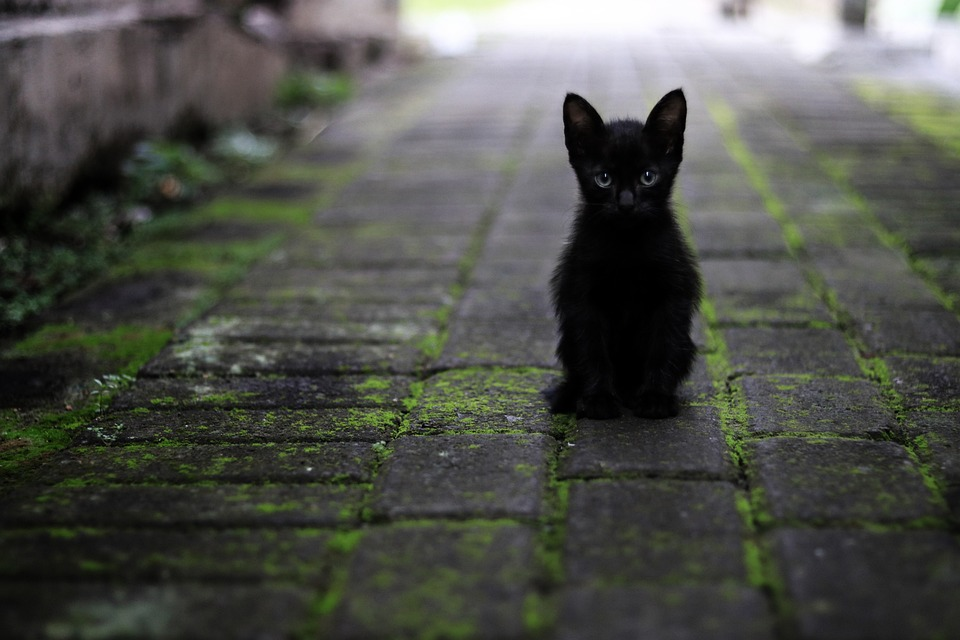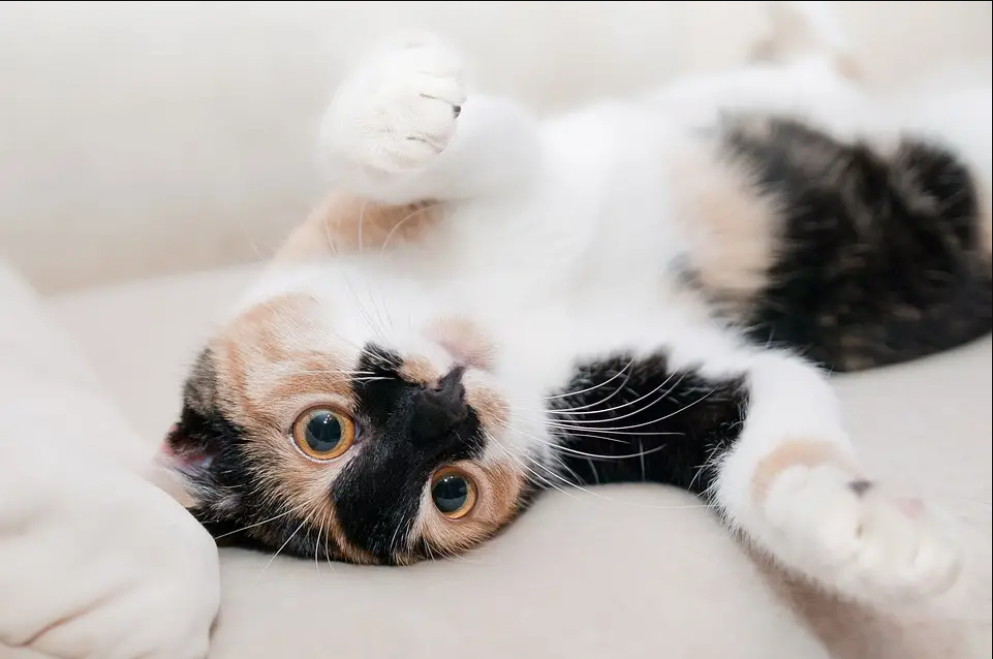Have you ever walked into your living room to a not-so-pleasant surprise left by your beloved cat? If you’re nodding yes, you’re not alone. Cats peeing outside their litter box is a common issue that perplexes many cat owners. But why does this happen? Is your furry friend just being naughty, or is there more to this behavior?

Table of Contents
Why Is Your Cat Peeing Everywhere?
Cats are known for their cleanliness, so when they start peeing outside the litter box, it’s a sign that something’s off. Let’s delve into the common reasons behind this behavior:
Marking Territory
Cats use urine marking as a way to communicate and assert dominance. This behavior is more common in unneutered males but can occur in any cat. They might spray on vertical surfaces, leaving a strong odor as a signal to other cats.
Medical Issues
Health problems in their urinary system can lead to inappropriate urination. Urinary tract infections (UTIs), bladder stones, kidney disease, or diabetes can make urination painful or frequent, leading your cat to pee outside the litter box. Sometimes, the discomfort associated with the litter box due to these conditions can lead many cats to avoid it.`
Litter Box Problems
The state of the litter box plays a huge role. Cats can be particular about the cleanliness, type of litter, and location of their box. A box that’s too dirty, too small, or in a noisy area can discourage use. Also, some cats prefer a certain type of litter over others. Your cat prefers a clean, private, and spacious space to do the deed — and if you have a large house, you might need two litter boxes for your cat.
Stress and Anxiety
Changes in the home, such as new pets, a new baby, moving house, or even changes in routine, can stress your cat, leading to inappropriate urination. Cats thrive on routine and predictability, so any disruption can affect their behavior.
Old Age and Incontinence
As cats age, they may suffer from incontinence or lose mobility, making it hard to reach the litter box in time. Cognitive dysfunction in older cats can also cause confusion, leading them to forget the location of their litter box.

How to Identify the Cause
Figuring out the reason behind your cat’s inappropriate urination can be tricky, but it’s crucial for finding the right solution. Here’s how you can identify the cause:
Observing Behavior
Pay attention to when and where your cat urinates. If it’s always in the same spot or in response to certain situations, it might be behavioral. Notice if your cat is straining to pee, which could indicate a medical issue.
Veterinary Checkups
A visit to the vet is essential. They can rule out or treat any medical issues that might be causing the behavior. Tests like urinalysis, blood work, and sometimes X-rays or ultrasounds are used to diagnose health problems — like a urinary tract infection.
Litter Box Examination
Check if it’s a litter box problem. Make sure it’s clean, large enough, and in a quiet, accessible location. Try different types of litter to see if your cat has a preference. And if you have multiple cats, one litter box won’t be enough. Make sure that there’s sufficient and high quality cat sand in each of the boxes.
Environmental Factors
Consider any recent changes in your home or routine that could be causing stress. Cats are sensitive to changes in their environment and may react by urinating outside their litter box.
Behavioral Signs
Look for signs of stress or anxiety in your cat, like hiding more than usual, changes in appetite, or excessive grooming. These signs, coupled with inappropriate urination, can indicate a stress-related issue.
By carefully analyzing these aspects, you can better understand why your cat is behaving this way and take appropriate steps to help them.

Effective Solutions
Once you’ve identified the cause of your cat’s inappropriate urination, you can start implementing solutions. Here are some effective ways to address this issue:
Proper Litter Box Management:
Cleanliness
Keep the litter box impeccably clean. Cats are fastidious creatures and prefer a clean place to do their business. Scoop the litter daily and change it completely every week.
Multiple Boxes
If you have more than one cat, provide multiple litter boxes. The general rule is one box per cat plus one extra.
Location and Type
Place the litter box in a quiet, low-traffic area. Ensure it’s easily accessible, especially for older cats or those with mobility issues. Experiment with different types of litter and boxes (covered vs. uncovered) to find your cat’s preference.
Addressing Behavioral Issues:
Create a stable, stress-free environment. Provide safe hiding spots, maintain a consistent routine, and slowly introduce new changes or pets.
Keep your cat mentally stimulated. Use toys, scratching posts, and interactive playtime. Window perches and cat trees can also enrich their environment.
Medical Treatment Options
If a medical condition is diagnosed, follow your vet’s treatment plan. This may include antibiotics for infections, special diets for urinary issues, or medication for other health problems.
Regular follow-ups with the vet are crucial to monitor your cat’s health and adjust treatments as necessary.
Behavior Modification Techniques:
Positive reinforcement can be used to encourage your cat to use the litter box. Reward them with treats, praise, or petting when they use it.
Avoid punishment, as it can increase stress and worsen the problem.

Preventive Measures
Prevention is always better than cure, especially when it comes to your cat’s litter box habits. Here are some preventive measures to keep in mind:
Routine and Stability
Cats thrive on routine. Keep their feeding, play, and litter box cleaning schedule as consistent as possible.
Minimize changes in the household and introduce new pets or family members gradually.
Regular Veterinary Visits
Regular check-ups can catch medical issues early before they become serious.
Discuss any changes in your cat’s behavior with the vet during these visits.
Proper Litter Box Setup
Maintain the cleanliness and appeal of the litter box. This includes washing the box with mild detergent regularly.
Ensure you have enough litter boxes in multi-cat households and consider the placement and type of each box.
Stress Management
Identify and minimize stressors in your cat’s environment.
Provide a safe, comfortable space where your cat can retreat and feel secure.
Environmental Enrichment
Regular playtime and interaction can prevent boredom and stress.
Offer various toys and change them regularly to keep your cat interested and engaged.
By implementing these solutions and preventive measures, you can create a harmonious living environment for your cat, reducing the likelihood of inappropriate urination and strengthening the bond between you and your feline companion.
Stop Your Cat From Peeing Everywhere!
As we’ve seen, a cat peeing outside the litter box isn’t just a case of bad manners; it’s a sign that something’s up. Whether it’s a medical condition, stress, or just a dislike for their current litter situation, understanding the root cause is key. Remember, patience and empathy go a long way in resolving these issues. By giving your cat the care, attention, and environment it needs, you’re not just solving an inconvenient problem, but also nurturing a healthier, happier relationship with your feline companion. So, the next time you catch a whiff of something amiss, know that with a little detective work and a lot of love, you and your cat can overcome this hurdle together!
FAQs
Why do cats mark their territory with urine?
Cats use urine marking as a way to communicate with other cats and to establish their territory.
Can a dirty litter box cause my cat to pee elsewhere?
Yes, cats prefer a clean environment and might avoid a dirty litter box.
How can I reduce my cat’s stress?
Maintaining a stable environment and routine can significantly reduce stress in cats.
Is it normal for older cats to pee outside the litter box?
Incontinence is common in older cats, but it’s always best to consult a vet to rule out medical issues.
Should I punish my cat for peeing outside the litter box?
Punishment is not effective and can increase stress. Understanding and addressing the underlying cause is more beneficial.

